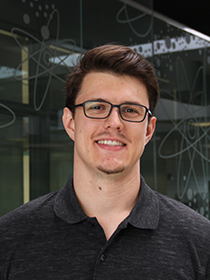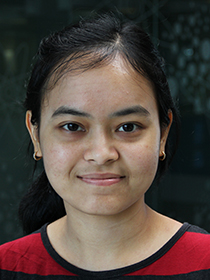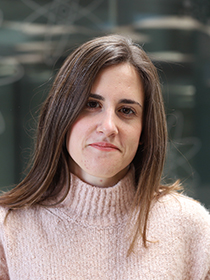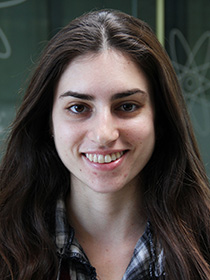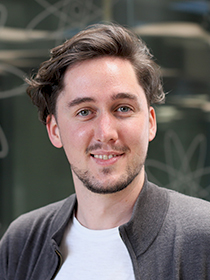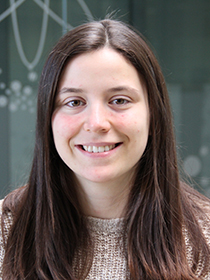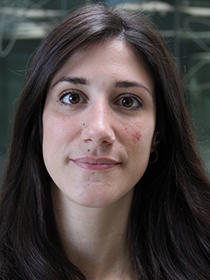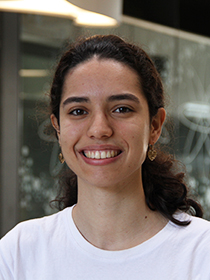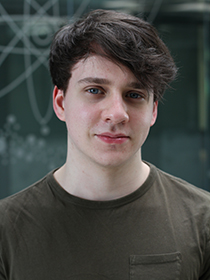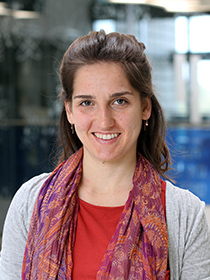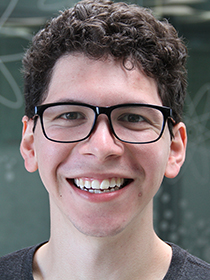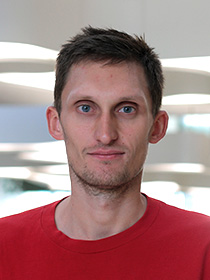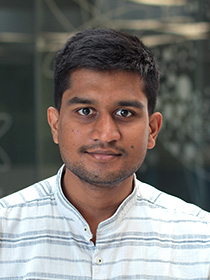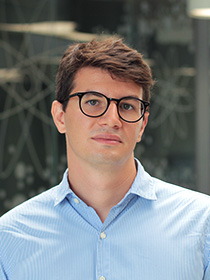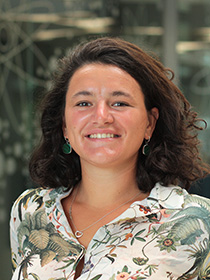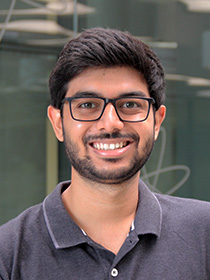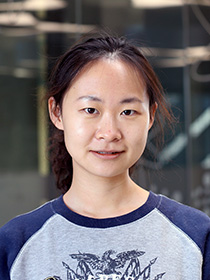Enlighten
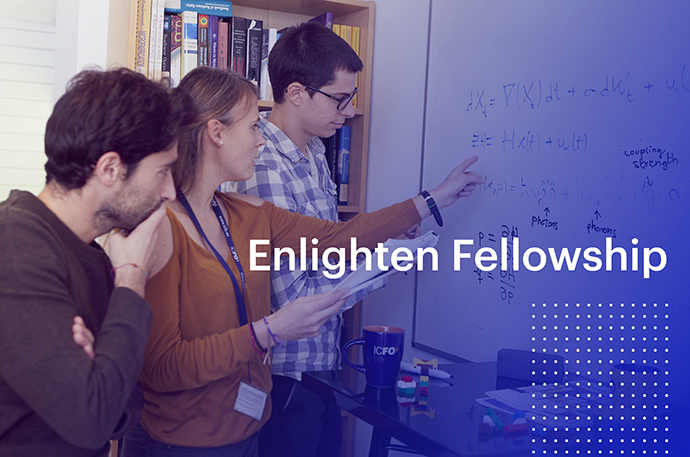
ENLIGHTEN is a Marie Sklowdowska-Curie-COFUND action under the European Union’s Horizon 2020 research and innovation program, which will be awarding a total of 20 fellowships to outstanding graduate students under grant agreement No 847517.
The 20 fellowships will be distributed in multiple calls.
· Call 1 (CLOSED): 23 July 2019 – Deadline 22 September 2019
· Call 2 (CLOSED): 29 November 2019 – Deadline 1 March 2020
· Call 3: (CLOSED): 17 June 2020 – Deadline 20 September 2020
· Call 4: (CLOSED): 15 December 2020 – Deadline 14 February 2021
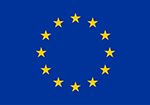 This project has received funding from the European Union’s Horizon 2020 research and innovation programme under the Marie Skłodowska-Curie grant agreement No 847517
This project has received funding from the European Union’s Horizon 2020 research and innovation programme under the Marie Skłodowska-Curie grant agreement No 847517
General Eligibility Requirements
To be eligible, all candidates for a PhD position at ICFO must have:
- An internationally recognized Master-equivalent degree. The degree must be completed by the start of their prospective PhD at ICFO, at the latest, and must be in a field of science and engineering related to the ICFO research activities. Degrees issued within the European Higher Education Area (EHEA) must have an equivalent to 300 ECTS, out of which a minimum of 60 ECTS must have been obtained in postgraduate studies.
- An excellent academic record, previous research experience and a strong commitment for scientific research.
- A high working knowledge of English.
- Candidates who have already been awarded a PhD are not eligible to apply.
ICFO is an equal opportunity employer. Candidates are selected exclusively on merit and potential on the basis of submitted application material. No restrictions related to disabilities, citizenship or gender apply to ICFO positions. ICFO abides by the principles of openness, efficiency, transparency, supportiveness, and international comparability as stated in the European Charter for Researchers and the European Code of Conduct for the Recruitment of Researchers.
Candidates with disabilities or other special needs are strongly encouraged to apply to the program. ICFO will provide all possible assistance to ensure the candidate’s application is fairly assessed.
Candidates who have extenuating circumstances that may explain gaps in the academic career or other potentially negatively evaluated aspects of their application are invited to volunteer, if they wish, personal information that the selection panel may consider in their evaluation. Such information may include details of family obligations, severe illness or disability, refugee situation, etc. If the selection panel decides to shortlist a candidate based in part on such extenuating circumstances, it may require the candidate to provide reasonable supporting documentation.
Conditions
• Initial ICFO contract for a period of 6 months, while being pre-admitted to the PhD Program, with a follow-up/ renewal procedure at the end of this first stage. During this period, students are fully integrated into an ICFO research group, take part in the ICFO working environment and training programs, and work with their supervisor to define and commence a research project. The annual gross salary subject to the stipulated fiscal and social security deductions during this period is 25.900€. This period is not financed by the COFUND Grant, but it is covered by other funding.
• After this initial period, students are formally enrolled in the UPC PhD Program in Photonics (1), and the ENLIGHTEN COFUND PhD Fellowship is activated for a period of three years. Fellowships are renewable for an additional fourth year with ICFO Funding, and are formalized via a PhD-contract. Continuity and renewal are subject to satisfactory performance in the PhD studies and related research activities, evaluated annually by the Thesis Director and the ICFO PhD Committee. The total gross annual allowance including the employer costs is 32.508€ per year and the annual gross salary for the fellow, subject to the stipulated fiscal and social security deductions, is 25.900€ (including living and mobility allowance).
• All ICFO fellowships include medical care coverage and work accident insurance through the Spanish Social Security system, providing access to the Spanish public health care system.
• It is foreseen within the program that ICFO/Group will make available 6.000,00€/year/fellow to cover research costs (consumables and other materials deemed necessary to carry out the research project) and 1.800,00€/year/fellow to cover other costs (training and other related costs, such as registration fees, travel and subsistence costs for participation in national or international events, conference, meetings, schools, and/or other training activities). Following institutional regulations, the allocated funding for research, training and other costs are managed by ICFO and the Group Leader of the group that hosts the corresponding fellow.
(1) In exceptional circumstances, a student may be enrolled in another local PhD program.
CRITERIA FOR THE SELECTION OF RESEARCHERS
Candidates will be evaluated by international external experts. Selection will be based on merit and potential, measured in terms of demonstrated academic record, research experience and personal achievements. The evaluation criteria take into consideration qualitative achievements of the candidate, and the potential impact that the fellowship provides. Candidates are evaluated based on demonstrated performance relative to opportunity, taking-into-account career interruptions and other extenuating circumstances. Relevant intersectoral experience through internships and work experience, pro-activity, participation in community activities, independence, initiative, and capacity for teamwork are positively evaluated.
First Review Stage. Evaluation is based on submitted documentation and structured, standardized information prepared by HRE to ensure that the evaluation process is fair and unbiased. Candidate evaluations will be based on:
- Previous Research and Intersectoral Experience
- Academic Excellence & Other Achievements
Statement of Research Interests Quality of References
Second Review Stage. Evaluation will be based on the candidate’s written research proposal, performance at interview and response to questions using the following four equally weighted criteria:
- Quality of Written Research Proposal
- Presentation of Final Research Project
- Motivation for pursuing PhD in chosen field & Scientific Interests
- Communication Skills, Independence, Initiative & Teamwork Skills
The scores from the First Review Stage and the Second Review Stage will be combined with equal weight to determine the final ranking.
When all other scores and evaluation criteria are equal, recruitment preference shall be given to candidates from under-represented groups: women, candidates with disabilities or from refugee backgrounds
Specific Eligibility Requirements for Enlighten
In addition to the general eligibility criteria defined above, candidates for the ENLIGHTEN COFUND PhD positions must comply with the following EU-rules by the time of activation of the PhD-contract:
- By the time of the COFUND-contract activation, the candidate must not have resided or carried out their main activity (work, studies, etc.) in Spain for more than 12 months during the last 3 years. Compulsory national service and/or short stays such as holidays are not counted.
Application Process
To apply, suitable candidates are requested to submit the following materials online:
- Completed online application form
- A Cover Letter addressing research interests and motivation for application, as well as the candidate’s background and suitability for the position
- A Curriculum Vitae , including contact details
- Scanned copies of the complete (Bachelor and Master equivalent) official academic transcripts in English or Spanish
- Scanned copies of the degree certificates, if available at the time of application
- If available, scanned copy of standardized test results (GRE, TOEFL, etc.). Note that submission of test results is optional, but they can be particularly helpful for evaluating candidates with degrees obtained outside the European Higher Education Area
- The names and contact details of two referees. IMPORTANT: HRE will automatically contact these referees to ask them to complete a standardized evaluation form and submit a letter of support for the candidates. Once the referee has submitted the documents, the applicant will receive an email confirming that the corresponding reference letter has been submitted
Selection Process
Once fulfilment of eligibility requirements has been verified, the Selection Committee will evaluate all eligible candidates
In the first step of the selection process, applications will be assessed by the selection committee based on merit and potential, measured in terms of the academic record and personal achievements. Academic excellence is a must. Pro-activity, participation in community activities, and capacity for teamwork are also taken into account. Applicants will be notified of the results of the first evaluation stage.
In the second step of the selection procedure, short-listed candidates will receive invitations for oral interviews with the selection committee and ICFO Group/Team Leaders. Please note that that the visit to ICFO for personal interviews may be replaced by online interviews depending on the circumstances. Applicants will be notified accordingly. Candidates who pass to the interview stage of the review process are asked to prepare a 2-page (max.) written research proposal based on their final Masters project (or equivalent). This proposal is not required to match research projects on offer through ICFO research groups and will be used for evaluation purposes only. The interview process involves a standard interview with the Selection Committee, including a presentation of the candidate’s academic trajectory and research interests, and individual interviews with ICFO Group Leaders.
The final list with candidates recommended for fellowship concession, as well as reserve candidates, will be available approximately one week after the interviews. As a final condition for acceptance, shortlisted candidates must find a hosting group at ICFO. Candidates are therefore asked to contact the ICFO Group Leader(s) of choice to negotiate directly a potential PhD position in their group. Candidates and Group Leader should confirm within one week whether an agreement has been reached. Fellowships will not be awarded to candidates who are unable to negotiate a match with an ICFO research group.
At all stages of the process, candidates may contact ICFO Human Resources and Education via jobs@icfo.eu
All applicants have the right to appeal decisions in the event that there is evidence of bias or conflict of interest, failure to have reasonably followed the published evaluation procedure or factual errors made by one or more evaluators that could have substantially altered the outcome of evaluation. A dedicated, external and independent Appeals Panel will be established to rule on this outcome.
Fellows Awarded (all positions have been filled)
Sebastian
Hägele
ICFO GROUP: Optoelectronics
Our phase imager can detect very tiny – a few atomic layers thick – surface and volumetric changes in a sample by using fundamental properties of light. It is based on a proprietary interferometric design including consumer components such as birefringent plates and image sensor arrays of smartphone cameras.
Sumana
Chetia
ICFO GROUP: Medical Optics
Working on development of a hybrid diffuse optical imaging system which is non-invasive and allows continuous and longitudinal monitoring of cerebral hemodynamics for understanding brain functioning. The work includes the development of the instrumentation, the analysis methods and the noise correction models and finally exploiting the system in pre-clinical studies.
Jessica
Angulo
ICFO GROUP: Single Molecule Biophotonics
In my PhD, I use fluorescence microscopy to study how cells work. Concretely, I am interested in the production and distribution of proteins around the cell. This is a very important process that allows the cell to survive. Fluorescence microscopy allows me to see cellular structures with much higher resolution, and to even get to see single proteins moving.
Katerina
Gratsea
ICFO GROUP: Quantum Optics Theory
The recent advances in quantum technologies transform the perceptron — the fundamental building block of neural networks — to its quantum version. In my research project, I will address how to design and analyze quantum perceptrons, and in turn use them to design and analyze quantum neural networks.
Lukas
Lau
ICFO GROUP: Single Molecule Biophotonics
I’m investigating forces in immune system interactions. Immune system cells act in an environment where they’re constantly subject to chemical cues and mechanical stresses, which they use to direct their motion and find targets. Understanding how the forces affect their motility and interactions is the aim of my project.
Maria
Balanzo
ICFO GROUP: Quantum Information Theory
Soon, quantum technologies will outperform their classical counterparts in a variety of important tasks. In this project I aim to provide tools to achieve quantum certification: detecting when a quantum system has a relevant property, or performs a task as expected, such as providing cryptographic security or performing computations correctly.
Costanza
Agazzi
ICFO GROUP: Neurophotonics and Mechanical Systems Biology
In my project I explore diffuse neuronal injury induced by mechanical compression or strain, which has been shown to be linked both to traumatic brain injury (TBI) and progressive neurodegenerative diseases, by designing and building an open-top light-sheet microscope for the study of compressed mouse organoids and neurons’ deformation on elastic surfaces.
Barbara Andrade
dos Santos
ICFO GROUP: Quantum Optics Theory
I am developing quantum technologies for quantum simulations of lattice gauge theories. I am working on a random quantum circuit to simulate a simplified model of quantum electrodynamics called Schwinger model. Our goal is to investigate the evolution of states that take a long time to thermalize, meaning that some physical quantities keep oscillating for a long time.
Luke
Bailey Mortimer
ICFO GROUP: Quantum Information Theory
On one hand I am investigating the theoretical performance of quantum computers as well as searching for new quantum algorithms, whilst on the other I work with classical optimization, trying to find more efficient ways to solve some of the hardest problems that we know of (those known as NP-complete).
Teresa
Karanikolaou
ICFO GROUP: Theoretical Quantum-Nano Photonics
On one hand I am investigating the theoretical performance of quantum computers as well as searching for new quantum algorithms, whilst on the other I work on improving classical optimization techniques.
Luis Felipe
Morales
ICFO GROUP: Neurophotonics and Mechanical Systems Biology
My project aims to increase the versatility of bioluminescence microscopy technique through deep learning approaches, improving the effective signal-to-noise ratio and reducing the exposure times to milliseconds in extremely photon-starved samples for time lapse and volumetric imaging.
Philipp
Stammer
ICFO GROUP: Quantum Optics Theory
I am interested in investigating new light sources in which the radiation has particular properties. To observe those properties, new measurement schemes need to be constructed such that the information is extracted. The gained information is then condensed in the corresponding theory, leading to new sources of light with increased information compressibility.
Aditya
Jagadeesh Malla
ICFO GROUP: Functional Optoelectronic Nanomaterials
Infrared light is used in wide variety of technologies around us for various purposes. Quantum dots are semiconductor particles in the size of nano meter and offers high quantum yield and sharper emission. My research work is to develop highly efficient and powerful infrared light-emitting diodes using quantum dot technology.
Riccardo
Bertini
ICFO GROUP: Quantum Nano-Optoelectronics
Chirality is the property of those systems different from their mirror image, like our hands. This widespread feature among molecules it’s of great importance for many pharmaceutical applications. Using infrared light, I study chirality in twisted bilayer graphene, a “magic” material showing exotic and otherwise hardly accessible phases of matter.
Marta
Cagetti
ICFO GROUP: Quantum NanoElectronics and NanoMechanics
The development of a computer based in the laws of quantum physics is one of the promising challenges. The quantum bit is the minimum unit containing information and my work consists in the creation of the first mechanical quantum bit, easily integrable in other systems.
Tomáš
Lamich
ICFO GROUP: Atomic Quantum Optics
My research focuses on the fundamentals of light-matter interaction. Currently we are pushing towards engineering of nonclassical emission of light from single atom with the goal of studying interactions between single photons and an atom.
Anubhav Kumar
Srivastava
ICFO GROUP: Quantum Optics Theory
One of my research projects involves proposing an experimentally feasible quantum thermometer model which can efficiently estimate the temperature of many-body quantum systems in a one-dimensional optical lattice. Another project in quantum information theory is about finding the bounds for the coherence of a many-body quantum system with partial information.
Jie
Meng
ICFO GROUP: Attoscience and Ultrafast Optics
Visualizing chemical and biological processes is one of the great challenges of science. Laser-induced electron diffraction (LIED) provides a robust way to image structural changes in gas-phase molecules. My research aims to capture the motion of molecular structures in chemical reactions with femtosecond temporal resolution.
Enlighten Fellowship Frequently Asked Questions (FAQ’s)
How many ENLIGHTEN fellowships are available?
The program will fund 20 fellowships.
How do I apply?
Applications must be presented through the ICFO Jobs Opening site ICFO Jobs: https://jobs.icfo.eu. Please read with attention the “Application process” section before you apply to make sure that you can meet the call’s requirements.
Which research topics are offered for the fellowships?
Fellowships will be offered across all ICFO research groups. Please see the Research groups pages for more details about available research lines.
What will my salary be? How much is the fellowship worth?
The ENLIGHTEN COFUND fellowship amount is at H2020 MSCA-COFUND level, annual gross salary: 25.900€ subject to the stipulated fiscal and social security deductions.
It is foreseen within the program that ICFO/Group will make available 6.000,00€/year/fellow to cover research costs (consumables and other materials deemed necessary to carry out the research project) and 1.800,00€/year/fellow to cover other costs (training and other related costs, such as registration fees, travel and subsistence costs for participation in national or international events, conference, meetings, schools, and/or other training activities). Following institutional regulations, the allocated funding for research, training and other costs are managed by ICFO and the Group Leader of the group that hosts the corresponding fellow.
What are the eligibility criteria?
The eligibility criteria can be found in the “Eligibility Criteria” section.
Can I apply if I have lived or worked in Spain previously?
If you have worked in Spain for more than 12 months of the last 36 months by the time of the COFUND-contract activation, you are not eligible for ENLIGHTEN fellowships.
Can I apply if I do not yet possess a Master-equivalent degree that qualifies me for the ICFO PhD program?
To be eligible, all candidates for a PhD position at ICFO must have an internationally recognized Master-equivalent degree. The degree must be completed by the start of your prospective PhD at ICFO, at the latest, and must be in a field of science and engineering related to the ICFO research activities.
Can I apply if I already do have a PhD?
No, holders of a PhD degree are not eligible for ICFO PhD Program.
What is the exact deadline?
Call 1: opens 23/07/2019, deadline 23/09/2019 end of the day, 00:00h CET.
Call 2: opens 29/11/2019, deadline 01/03/2020 end of the day, 00:00h CET.
Call 3: opens 17/06/2020, deadline 20/09/2020 end of the day, 00:00h CET.
Call 4: opens 15/12/2020, deadline 14/02/2021 end of the day, 00:00 CET.
Are referees mandatory and will they be contacted?
Yes. Candidates must submit names and contact details of two referees who will be automatically contacted by HRE. Referees will be asked to complete a standardized evaluation form and submit a letter of support for the candidate. The deadline for receipt of these materials is one week before the application deadline. The applicant will receive a confirmation email once the corresponding reference letter has been submitted.
What are the different steps in the selection process?
The different steps in the selection process can be found in the “Selection process” section.
What are the evaluation criteria?
The evaluation criteria can be found in the “Criteria for the selection of researchers” section.
Is it possible to update my application after the submission?
Yes, modifications will be accepted before the call deadline.
How do I know about the state of my application?
Applicants will be informed on the progress at all stages of the process. E-mail is the main instrument for communication during the process.
Is it possible to appeal the evaluation results?
All applicants have the right to appeal in case of evidence of bias or conflict of interest, of failure to have reasonably followed the published evaluation procedure or factual errors made by one or more evaluators that could have substantially altered the outcome of evaluation. A dedicated, external and independent Appeals Panel will be established to rule on this outcome.
Where can I find information about living and working in Catalonia?
An exhaustive description on work and life at ICFO and in Catalonia can be found here.
